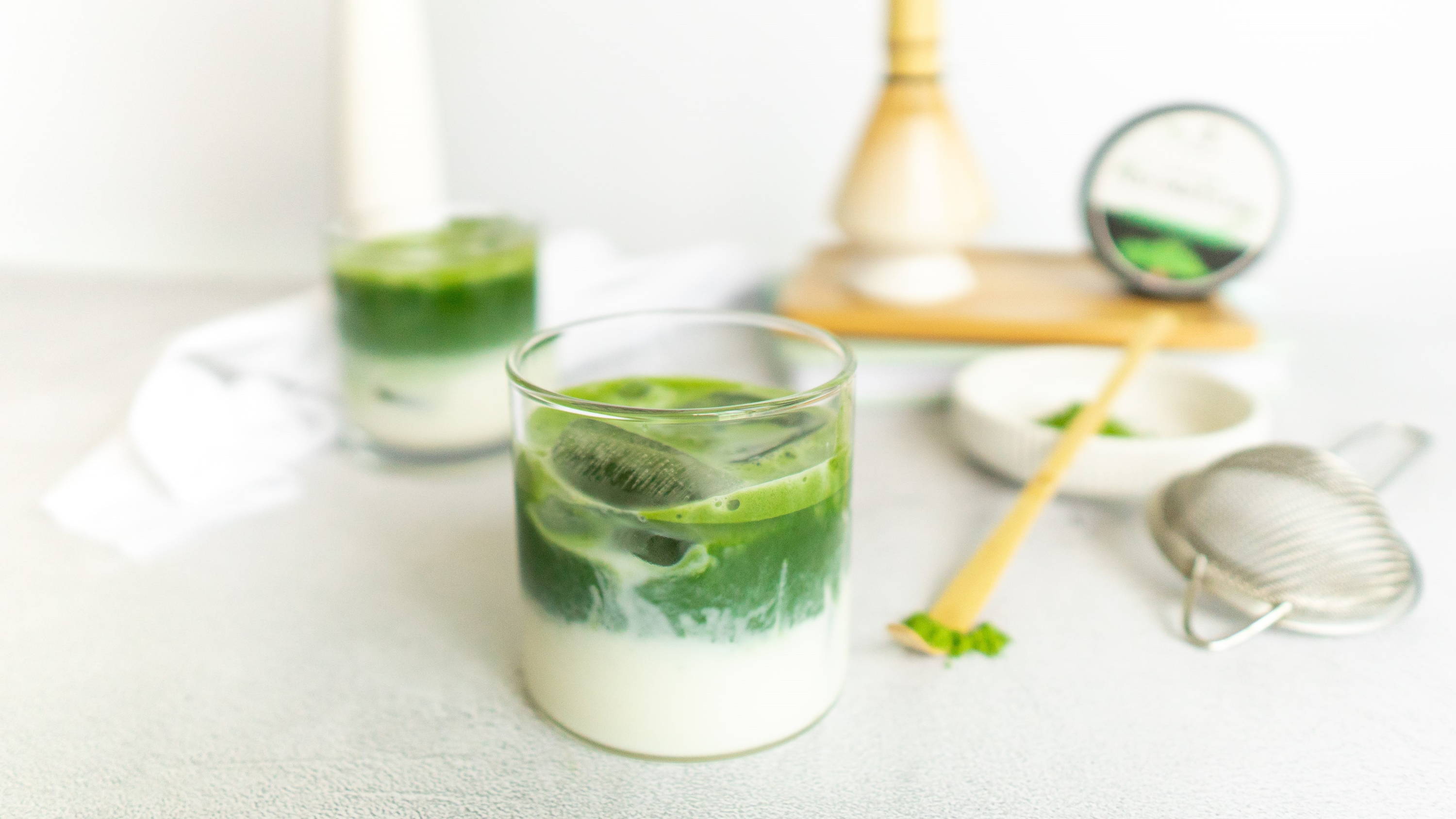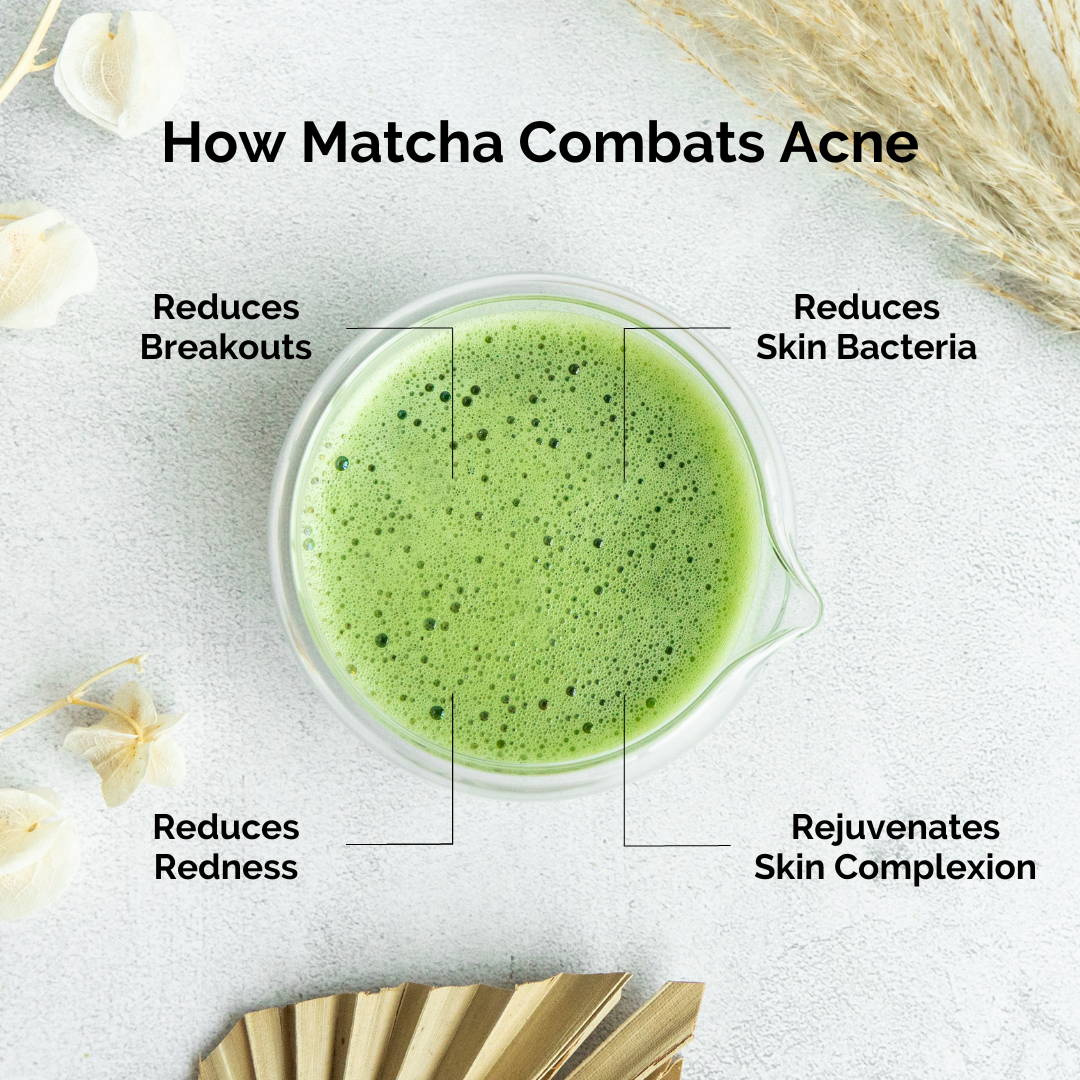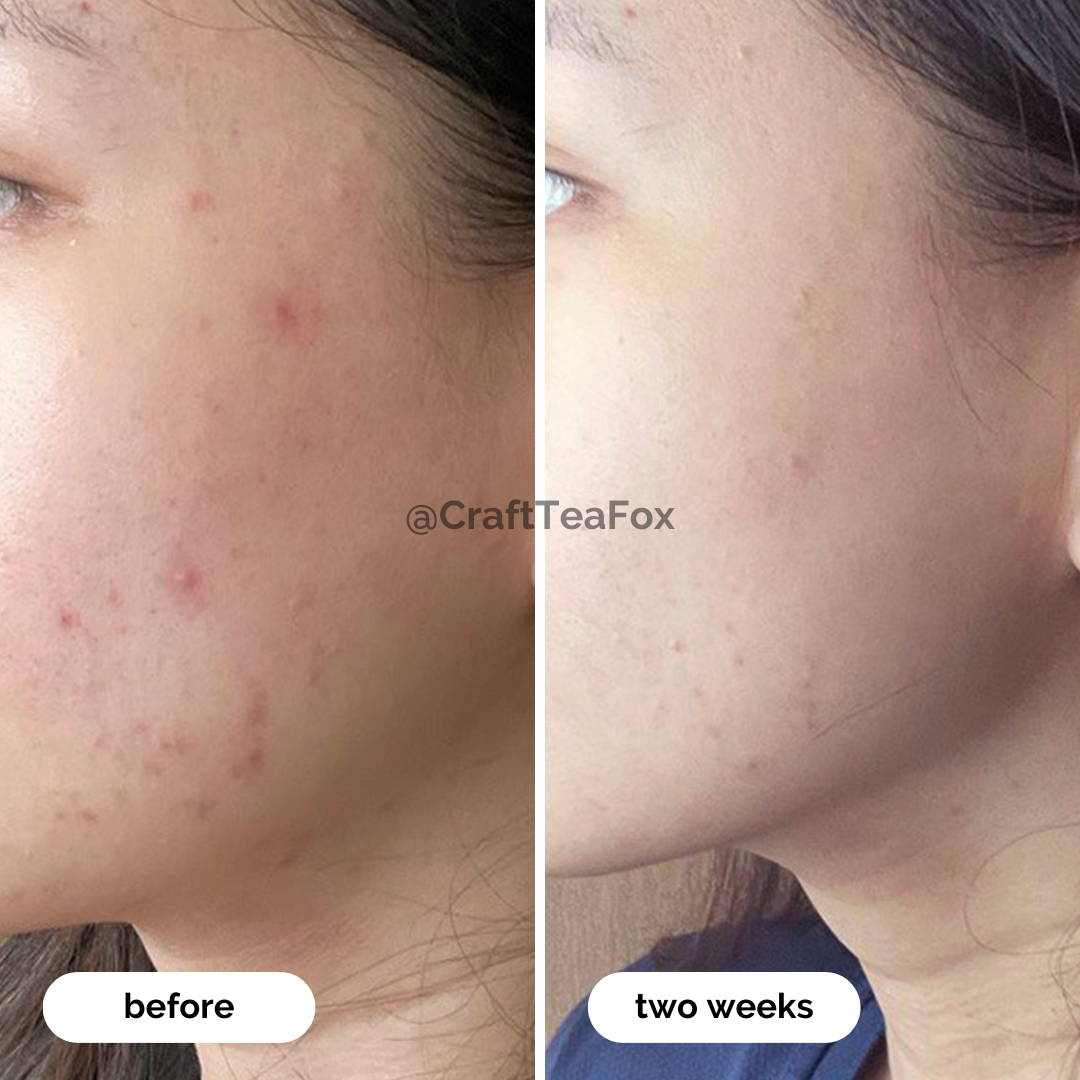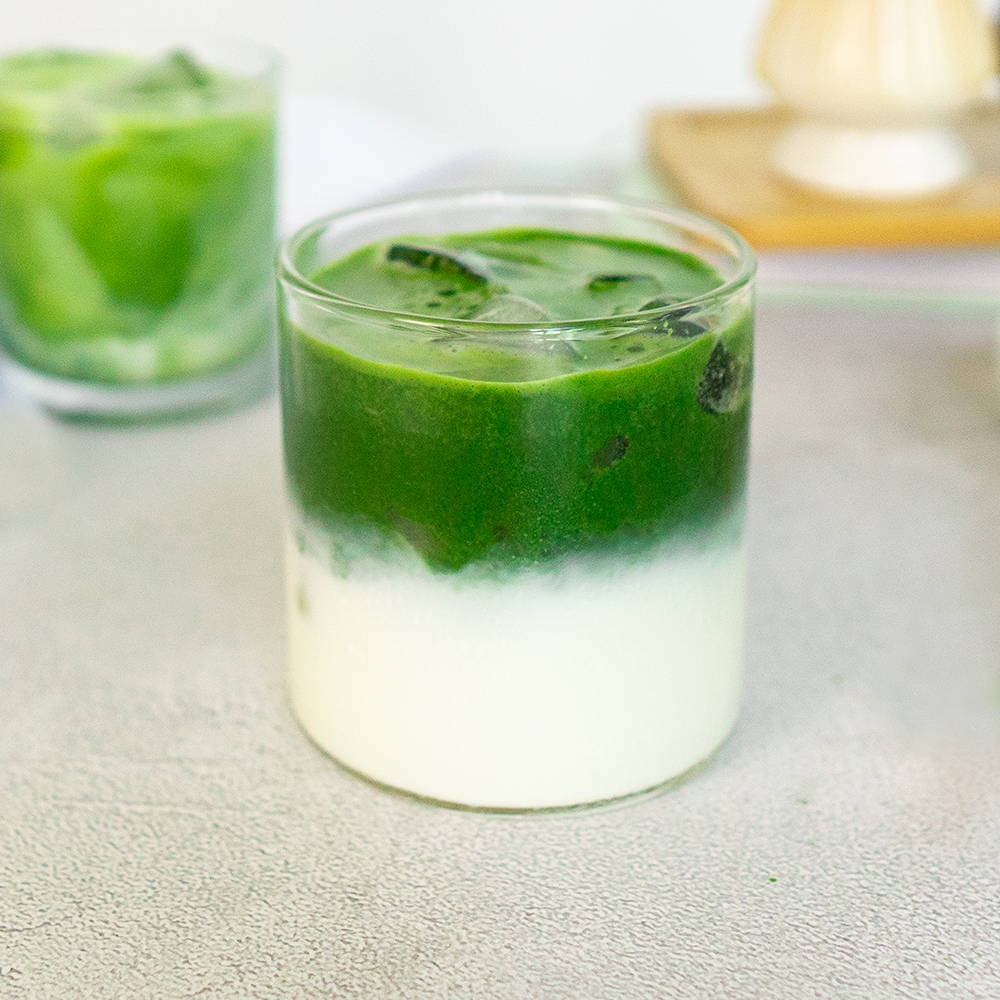Can Matcha help combat acne?
We did research and here's what we found.
7 Min Read
7 Min Read

Acne and its root cause
Do you struggle with acne? Some root causes of acne are the overproduction of sebum and bacteria.
Excess sebum can clog pores and cause inflammation, leading to the development of acne lesions. Skin bacteria further aggravates this, making one's acne worse.
While many treatments are available to manage acne, some people prefer natural solutions that are gentle on the skin. One such natural remedy that's highly underrated is Matcha.
But first – What exactly is Matcha?
Matcha is powdered Camellia Sinensis, a type of Japanese green tea.
How Matcha is produced:
Unlike most tea plants, the Matcha plant is cultivated differently. 20-30 days before harvest, the Matcha plant is shaded with a bamboo mat to avoid direct sunlight. This method boosts its chlorophyll production, in-turn increasing its nutritional content; it is also what gives Matcha its signature vibrant green colour!
After the leaves have been harvested, their stem and veins are removed. Only the flesh is stone-ground into Matcha powder.
How Matcha is prepared:
Matcha tea is prepared by whisking Matcha powder in water, before it is consumed as is or infused in other drinks or desserts. This means that compared to steeping green tea leaves in water, you are consuming the whole tea leaf and all its antioxidants and nutrients when you drink Matcha.
So, how exactly can Matcha help combat acne? Let's check it out.
Note: The information shared in this article is not exhaustive. Readers are still advised to do your own research before making any conclusions regarding Matcha's benefits for acne.
How does Matcha combat acne?
The main compound in Matcha believed to help combat acne is epigallocatechin-3-gallate (EGCG), a powerful antioxidant with anti-inflammatory properties.
Matcha: Rich In Antioxidants (EGCG)
Matcha has among the highest concentration of antioxidants among all foods, on a per gram basis:
- 15x that of Blueberries
10x that of Green Tea
7x that of Dark Chocolate
These are in the form of the green tea catechins, EGCG and EGC.

1. Reduces Breakouts
EGCG has been scientifically shown to reduce sebum production by inhibiting the enzyme responsible for producing it. Ever experienced stress-related breakouts? Matcha also contains L-theanine which stimulates the production of alpha brain waves, promoting a state of deep relaxation.
Matcha can help regulate your skin's sebum production and reduce stress-related breakouts.
2. Reduces Redness
When the skin becomes inflamed, it can become red, swollen, and painful. EGCG has anti-inflammatory properties which reduces skin inflammation. This helps soothe irritated skin and reduce the appearance of acne lesions.
EGCG in Matcha can help reduce skin redness and acne scars.
3. Combats Skin Bacteria
Propionibacterium acnes is a type of bacteria that contributes to acne by causing inflammation and infection. EGCG has been shown to inhibit the growth of P. acnes, killing off this harmful bacteria.
4. Rejuvenates Skin Complexion
Finally, EGCG in Matcha promotes collagen production. Collagen is crucial for maintaining healthy, youthful-looking skin as it helps renewal and repair of skin cells. This makes your skin soft, smooth, and firm. Additionally, it helps reduce appearance of scars and blemishes.
We drank Matcha for 2 weeks and this happened.

Length of duration before results may vary per individual. However, now that you’re aware of how Matcha can combat acne, try incorporating a cup or two into your daily routine to reap those benefits for your skin!
Recent
- Guides
- Recipes
You may also like:
- Guides
- Recipes


















